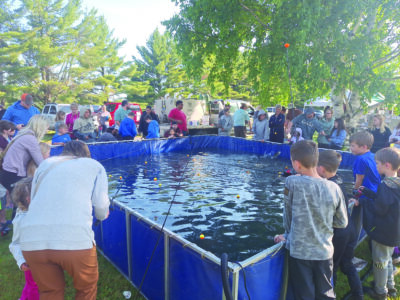Treatment options of mental health issues
[This is the first of a two-part series that looks at mental health treatment and recovery.]
For anyone wanting to seek help for a mental health issue, the first thing to consider is that one is not alone. A fact sheet published by the The National Alliance on Mental Illness, titled Mental Health by the Numbers, states:
“Millions of people in the U.S. are affected by mental illness each year. It’s important to measure how common mental illness is, so we can understand its physical, social and financial impact — and so we can show that no one is alone. These numbers are also powerful tools for raising public awareness, stigma-busting and advocating for better health care.”
The numbers include 1 in 5 U.S. adults experience mental illness each year — 20% of the adult U.S. population.
Mental illness, in spite of the stigma and shaming, is nothing to be ashamed of. It is a medical condition, just as heart disease and diabetes are medical conditions. As Australia’s Better Health Channel states: There are many treatment and support options to help people experiencing mental health conditions.
“Treatment can help a person’s condition to improve or help a person to live well, despite the presence of some ongoing symptoms,” Better Health states. “Psychological treatments can be helpful for people affected by a mental health condition. Sometimes medications are needed, especially if symptoms are impacting significantly on the person’s life. There are also other options that can help support recovery.”
Mental Health America says there are many different treatment options available. There is no treatment that works for everyone – individuals can chose the treatment, or combination of treatments, that works best.
Psychotherapy (talk therapy) is the therapeutic treatment of mental illness provided by a trained mental health professional, says MHA. Psychotherapy explores thoughts, feelings and behaviors, and seeks to improve an individual’s well-being. Psychotherapy paired with medication is the most effective way to promote recovery. Examples include: cognitive behavioral therapy, exposure therapy, dialectical behavior therapy, etc.
MHA goes on to state that medication does not outright cure mental illness. However, it may help with the management of symptoms. Medication paired with psychotherapy is the most effective way to promote recovery.
For those with a dual diagnosis of a mental illness and a substance use disorder, in addition to the above-mentioned treatments for mental illness, there are also successful treatments for managing addictions. Among these are specialized support groups, such as Alcoholics Anonymous, Narcotics Anonymous, Adult Children of Alcoholics, Al-Anon/Alateen and others.
AA, says American Addiction Centers, is an international organization of peer groups meet to support each other. Members meet regularly to discuss issues and concerns related to their addiction and to support one another through triumphs and relapses. Generally, more seasoned group members “sponsor” newer members, guiding them through the process of “working the steps” to help on alcohol rehabilitation.
The Alcohol Rehab Guide further says that individuals who attend AA groups are committed to stop abusing alcohol and remain sober. The meetings offer a multitude of ways to support ongoing recovery, like an effective 12-step program designed to treat alcoholism. The 12 traditions of AA were intended to stabilize the program and keep it freed from outside influences.
Whether the desire is to recover from a mental health issue, a substance use disorder, or both, there is hope, there is recovery, and there is a brighter future that includes health and freedom. Do not let those who engage in stigma or shaming stand in the way of that.





